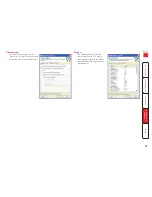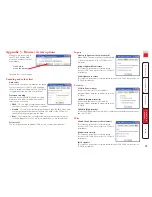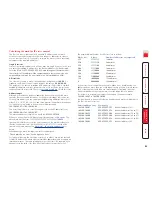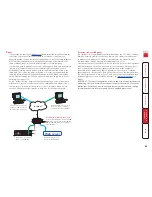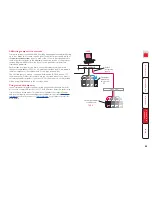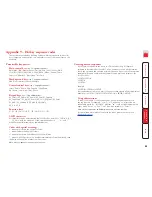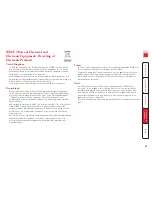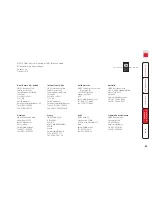
Appendix 9 – Hotkey sequence codes
These codes are used when defining hotkey switching sequences (macros) for
host computers and allow you to include almost any of the special keys on the
keyboard.
Permissible key presses
Main control keys
(see ‘Using abbreviations’)
Backspace
|
Tab
|
Return
|
Enter
|
Ctrl
|
Alt
|
Win
|
Shift
|
LShift
|
RShift
LCtrl
|
RCtrl
|
LAlt
|
AltGr
|
RAlt
|
LWin
|
RWin
|
Menu
|
Escape
|
Space
CapsLock
|
NumLock
|
PrintScreen
|
Scrolllock
Math operand keys
(see ‘Using abbreviations’)
Add (Plus)
|
Subtract (Minus)
|
Multiply
Central control keys
(see ‘Using abbreviations’)
Insert
|
Delete
|
Home
|
End
|
PageUp
|
PageDown
Up
|
Down
|
Left
|
Right
|
|
Pause
Keypad keys
(see ‘Using abbreviations’)
KP_Insert
|
KP_Delete
|
KP_Home
|
KP_End
|
KP_PageUp
KP_PageDown
|
KP_Up
|
KP_Down
|
KP_Left
|
KP_Right
|
KP_Enter
KP_Add
|
KP_Subtract
|
KP_Divide
|
KP_Multiply
KP_0 to KP_9
Function keys
F1
|
F2
|
F3
|
F4
|
F5
|
F6
|
F7
|
F8
|
F9
|
F10
|
F11
|
F12
ASCII characters
All characters can be entered using their ASCII codes, from 32 to 126 (i.e. A,B,C,
… 1,2,3 etc.) with the exception of the special characters ‘+’, ‘-’, ‘+–’ and ‘*’
which have special meanings, as explained below.
Codes with special meanings
+ means press down the key that follows
– means release the key that follows
+– means press down and release the key that follows
* means wait 250ms (note: if a number immediately follows the asterisk, then
the delay will equal the number, in milliseconds)
Note: Hotkey sequences are not case sensitive.
Creating macro sequences
Hot key macro sequences can be up to 256 characters long. All keys are
assumed to be released at the end of a line, however, you can also determine
that a key is pressed and released within a sequence. Any of the following three
examples will send a command that emulates and a press and release of the
Scroll Lock key:
+SCROLL-SCROLL
+-SCROLL
+SCROLL-
Example:
+--1+ENTER
Press and release scroll twice, press 1 then enter then release all keys (equivalent
definition is +SCROLL-SCROLL-1+ENTER-1-ENTER)
Using abbreviations
To reduce the length of the key definitions, any unique abbreviation for a
key can be used. For example: “scroll”, “scr” and even “sc” all provide an
identifiable match for “ScrollLock” whereas “en” could not be used because it
might mean “Enter” or “End” (“ent” would be suitable for “Enter”).
Note: Hotkey sequences and abbreviations are not case sensitive.
For information about where to enter these codes, please see the section
Keyboard control
.



